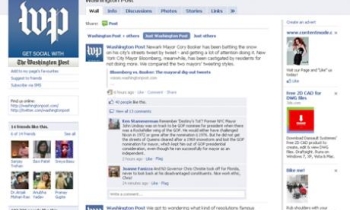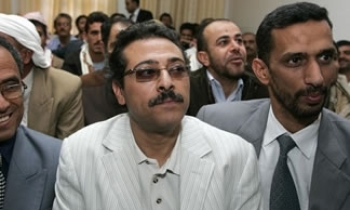Negotiators reached an “agreement in principle” Tuesday for guarding the editorial independence of The Wall Street Journal if its parent, Dow Jones, is sold to News Corp., people briefed on the talks said.
That agreement clears the way for discussion of price and other remaining issues. But some of these people cautioned that certain details on editorial independence remained to be settled, and said that they were reluctant even to call it an agreement yet.
The tentative accord has not yet been shown to the Bancroft family, owners of a controlling interest in Dow Jones, who can block any deal, according to a person close to the family who, like others who spoke about the agreement, was granted anonymity because he was not authorized to discuss it. People close to the company and the family said the Bancrofts would be formally briefed only when there is a tentative deal on all issues – newsroom control, price and everything else – that the Dow Jones board and News Corp. believed both companies could accept.
Rupert Murdoch, chairman of News Corp., has offered $60 a share for Dow Jones, for a total of $5 billion and a 65 percent premium above where the stock was trading before his offer became public knowledge.
But the Bancrofts have deep reservations about parting with the company, which has been in the family since 1902, and especially about selling to Murdoch, whose brand of journalism many of them disdain.A union that represents Dow Jones employees and a former board member and minority shareholder, James Ottaway Jr., say they are concerned that The Journal’s coverage might weaken under Murdoch and favor News Corp.’s interests.
For weeks, the family labored to reach an internal consensus on what kind of controls on editorial integrity would make a sale palatable, before producing a plan last week and turning negotiations over to the Dow Jones board.
But Murdoch reportedly found the family proposal unacceptable and since then, lawyers and bankers for Dow Jones, consulting with board members, have been trying to reach a compromise.
The Bancrofts’ plan was designed to prevent News Corp. from ever being able to hire or fire the top editors of The Journal’s newsroom, its editorial page and Dow Jones Newswires, along with the publisher of The Journal. It gave that power and some control over newsroom budgets, to an independent committee.
It was not clear how much the Dow Jones negotiators had retreated from the family’s position, or whether the compromise would be acceptable to the Bancrofts.
The board of Dow Jones includes four representatives of the Bancroft family, but the Bancrofts over all have more than 30 adult members, and differences among them have emerged in recent weeks. The family controls 64 percent of Dow Jones’s shareholder vote through a special class of privately held stock that has 10 votes per share.
The latest development came after General Electric and Pearson, the British publisher, decided last week not to make an offer for Dow Jones after the two companies considered that option.









